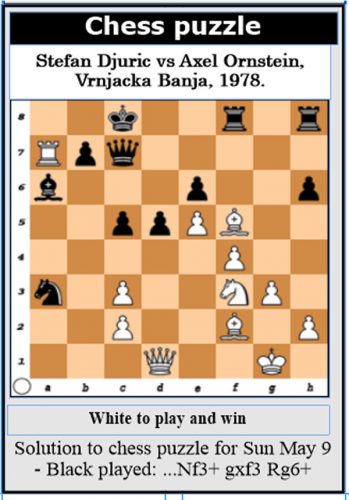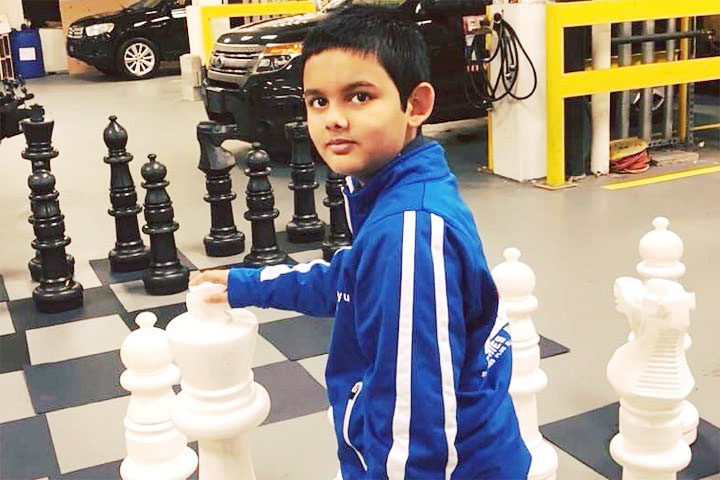

A former New York Times chess columnist, Harold Schonberg, noted that mathematics and music are the only other fields in which prodigies are common.
The introduction of the internet has caused more chess prodigies to emerge within recent times. People play chess on smart phones and get better, faster. Learning is quicker. Consequently, there remains a certain fascination with the youngest international master and grandmaster. Naturally, the importance of the youngest grandmaster supersedes that of an international master.
Russia was awarded that decoration of honour in 2002 when Sergey Karjakin qualified at 12 years, 7 months. Now that colossal achievement can be broken by 12-year-old Abhimanyu Mishra, an American international master, who earned his second grandmaster norm this month, and needs only one more to qualify as a full chess grandmaster.
Mishra has already eclipsed the record of India’s Rameshbabu Praggnanandhaa who was the youngest international master. Mishra has a live FIDE rating of 2471 and has until September 5 to obtain his third and final grandmaster norm. To become a grandmaster, one has to beat grandmasters and that is what Mishra has been doing. Can he become the youngest grandmaster in history?
Chess game
Today’s game is one of the few losses attributed to Jose Raul Capablanca during his lengthy chess career. Malik Mir Sultan Khan also won against, or drew with, eminent stalwarts of the 1930s such as Alexander Alekhine, Savielly Tartakower, Salo Flohr, Ossip Bernstein, Frank J Marshall, and Fred Yates.
White: Mir Malik Sultan Khan, India
Black: Jose Raul Capablanca, Cuba
Tournament: Hastings, England, 1930/31
Type of Game: Queen’s Indian Defence, Classical Variation
1. Nf3Nf6 2. d4b6 3. c4Bb7 4. Nc3e6 5. a3d5 6. cxd5exd5 7. Bg5Be7 8. e3O-O 9. Bd3Ne4 10. Bf4Nd7 11. Qc2f5 12. Nb5Bd6 13. Nxd6cxd6 14. H4Rc8 15. Qb3Qe7 16. Nd2Ndf6 17. Nxe4fxe4 18. Be2Rc6 19. G4Rfc8 20. G5Ne8 21. Bg4Rc1+ 22. Kd2R8c2+ 23. Qxc2Rxc2+ 24. Kxc2Qc7+ 25. Kd2Qc4 26. Be2Qb3 27. Rab1Kf7 28. Rhc1Ke7 29. Rc3Qa4 30. B4Qd7 31. Rbc1a6 32. Rg1Qa4 33. Rgc1Qd7 34. H5Kd8 35. R1c2Qh3 36. Kc1Qh4 37. Kb2Qh3 38. Rc1Qh4 39. R3c2Qh3 40. A4Qh4 41. Ka3Qh3 42. Bg3Qf5 43. Bh4g6 44. H6Qd7 45. B5a5 46. Bg3Qf5 47. Bf4Qh3 48. Kb2Qg2 49. Kb1Qh3 50. Ka1Qg2 51. Kb2Qh3 52. Rg1Bc8 53. Rc6Qh4 54. Rgc1Bg4 55. Bf1Qh5 56. Re1Qh1 57. Rec1Qh5 58. Kc3Qh4 59. Bg3Qxg5 60. Kd2Qh5 61. Rxb6Ke7 62. Rb7+Ke6 63. B6Nf6 64. Bb5Qh3 65. Rb8. 1-0. Black resigns.






